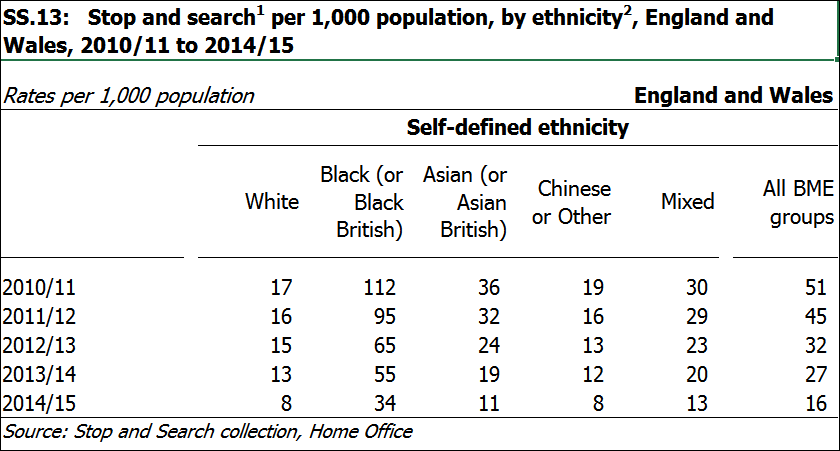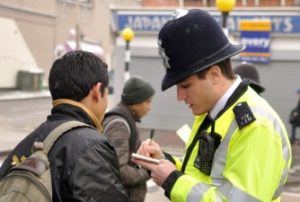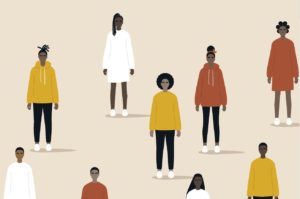Latest statistics show big drop
In April last year (2014), the Home Secretary Theresa May announced a package of reforms to change the way that the police use their powers to “stop and search.”
Last week (19 November 2015), the Home Office published the latest stop and search statistics which showed a substantial drop in its use.
[divider]
The figures
As you can see from the official data, the change is marked:
In the last year, the number of “Stop and Searches” has decreased by 360,341 or 40%. At the same time, the proportion of stops resulting in arrests has gone up from 12.02% to 13.83%.
[divider]
Discrimination?
One of the main criticisms of the police’s “Stop and Search” powers is that, historically, they have been disproportionately directed against members of Britain’s black communities.
The latest figures show that Black British people are still 4.5 times more likely than their white counterparts to be stopped and searched, although the figures do show a very substantial decrease in the likelihood of being stopped over the last five years with rates per 1,000 population falling from 112 to 34:
The Home Office also provides statistics on the proportion of stop and searches resulting in arrests, broken down by self-defined ethnicity. Metropolitan Police figures are separated out in this data table because Stop and Search is used much more in the Capital. You can see that a higher proportion of Black people who are stopped are arrested – 20%, compared to 13% for white and 14% for Asian people. As we have seen arrest rates for all ethnic groups have increased noticeably on the previous year:
[divider]
Conclusion
Overall, the decreasing use of Stop and Search (and the increasing proportion of stops resulting in arrests) will be seen as very positive developments by most commentators. The disproportionate use of Stop and Search against Black communities remains an issue, although some will point to higher arrest rates as justification (although we really need to see the outcomes of those arrests to make a more informed judgement).
It remains to be seen whether the new police anti-terrorism powers the government is discussing will result in a renewed increase in Stop and Search.









